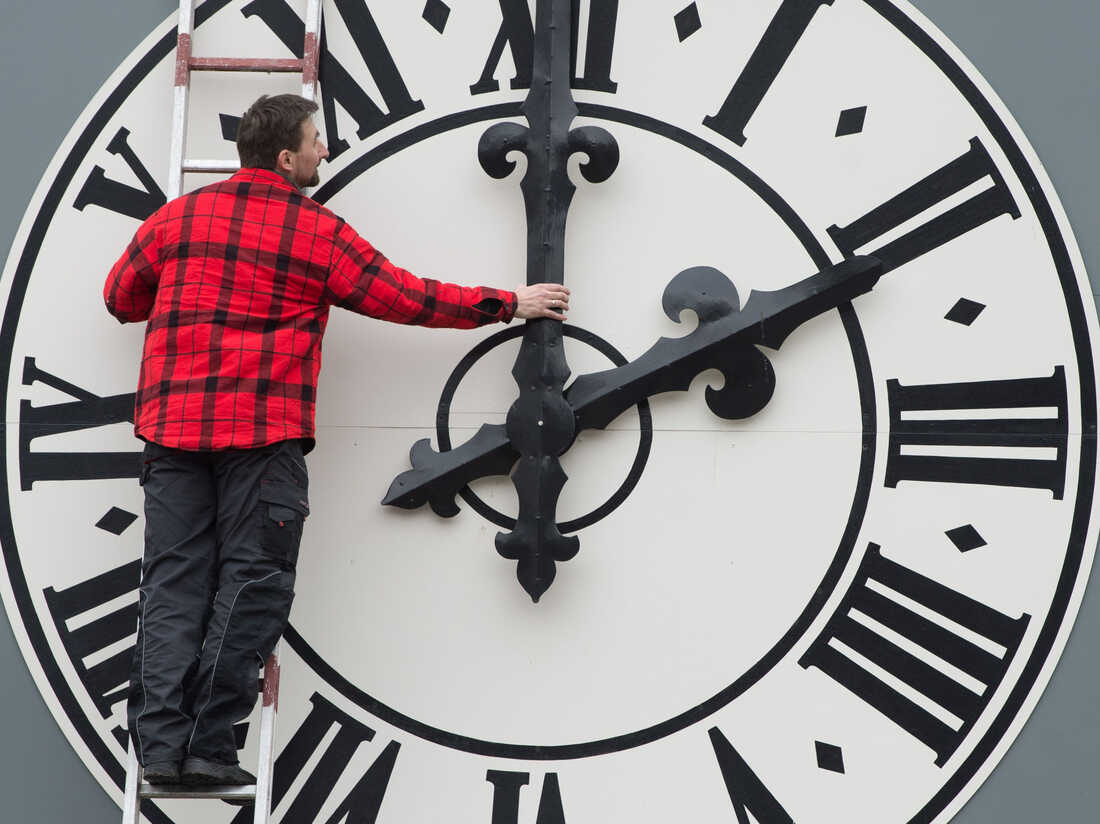'I'm not okay,' off-duty Alaska pilot allegedly said before trying to cut the engines
By Russell Lewis|Joel Rose
An Alaska Airlines plane, like this one operated by Horizon Air, had to divert to Portland, Ore. on Sunday after an off-duty pilot tried to turn off the engines in flight. Ted S. Warren/AP hide caption
toggle caption Ted S. Warren/APAn Alaska Airlines plane, like this one operated by Horizon Air, had to divert to Portland, Ore. on Sunday after an off-duty pilot tried to turn off the engines in flight.
Ted S. Warren/APAn off-duty Alaska Airlines pilot now faces federal charges for to Portland, Ore. after he allegedly .
Local and federal investigators suggested that the off-duty pilot, Joseph Emerson, had been battling depression, and he allegedly told them he had taken psychedelic mushrooms in the days before the flight.
The incident has renewed concerns around mental health care for pilots, and whether they are receiving the treatment they need.
Emerson was traveling in the flight deck jump seat sitting behind the pilot and first officer when the flight, operated by Horizon Air, took off from Everett, Wash. around 5 pm Sunday evening on its way to San Francisco. The Embraer 175 jet had more than 80 passengers and crew on board.
, the crew said Emerson gave "zero indication of anything wrong" during the initial stages of the flight.They said he was chatting about the weather and various types of airplanes. At some point as the jet moved south over Oregon, the first officer observed Emerson throw his headset across the cockpit and exclaim, "I am not okay."
That's when the pilots say Emerson grabbed the two red engine shutoff handles. The affidavit says the pilot grabbed Emerson's wrist and they "physically engaged" for an estimated 25-30 seconds and then Emerson "quickly settled down."
The pilot asked Emerson to leave the cockpit and he then walked to the back of the airplane. Emerson allegedly told a flight attendant, "You need to cuff me right now or it's going to be bad." The attendant cuffed his wrists and during the descent into Portland, according to the FBI, he "turned towards an emergency exit door and tried to grab the handle."
In an interview with an FBI agent, another flight attendant said she heard Emerson say "I messed everything up" and that "he tried to kill everybody."
During an interrogation, Emerson told the FBI that he had a "nervous breakdown" and had not slept in 40 hours. He said he'd felt dehydrated and tired. He told the agent that he pulled both emergency shut off handles because "I thought I was dreaming and I just wanna wake up."
filed in state court, officers from the Port of Portland Police say Emerson told them he had "consumed 'magic mushrooms' about 48 hours prior to the incident on the plane." One of those officers noted that Emerson did not appear to be "outwardly under the influence of intoxicants" when they interviewed him after the flight.Emerson told Port of Portland Police that he had been suffering from depression for six years, and that a friend had recently passed away, according to the state court affidavit.
Even before these latest details became public, the incident was reviving concerns across the aviation industry about the mental health of pilots.
Aviators have long resisted seeking help for mental health issues, aviation experts say, because they are concerned that they could be grounded by federal regulators if they do.
"Pilots are wired to deal with situations and get the job done," says Dennis Tajer, a veteran pilot and a spokesman for the Allied Pilots Association, which represents over 15,000 pilots at American Airlines.
Tajer says pilots have a lot invested in their training and careers, and are afraid of losing it.
"You think that your job is at stake, the income for your family is at stake," Tajer said. "If I don't have the mental fitness to get this done, I'm going to be grounded, lose my job, lose my home. And these are all awfulizing thoughts that the pilots go through that stop them from getting the care that they need if they need it."
The stigma around seeking mental health care has diminished over time, Tajer says, but it has not gone away completely.
Federal regulators are clearly aware of the issue. The leaders of the Federal Aviation Administration have urged pilots to come forward and get treatment if they need it, saying they will not automatically lose their medical clearance to fly as a result.
"Even if you need to take medication to stay well, you may be able to get a special issuance from my office," says Susan Northrup, who oversees the pilot medical certification process at the FAA, posted on the agency's web site.
, including reckless endangerment and endangering an aircraft. Emerson made a brief court appearance in Portland Tuesday afternoon and his attorney entered a not guilty plea to the state charges.


